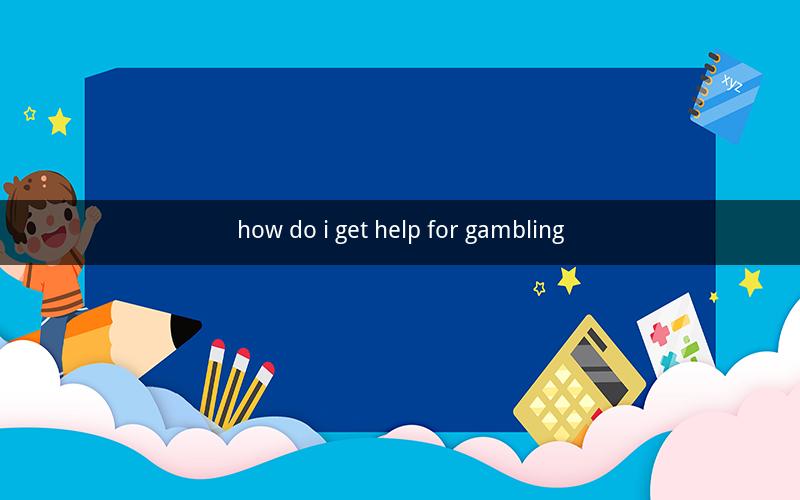
How Do I Get Help for Gambling?
Table of Contents
1. Understanding Gambling Addiction
2. Recognizing the Signs of Problem Gambling
3. Seeking Professional Help
4. Support Groups and Community Resources
5. Online Resources and Tools
6. Financial Management Strategies
7. Legal and Ethical Considerations
8. Family and Friends Support
9. Self-Help Techniques
10. Long-Term Recovery and Relapse Prevention
1. Understanding Gambling Addiction
Gambling addiction, also known as gambling disorder, is a behavioral addiction characterized by an inability to control the urge to gamble, despite negative consequences. It is important to recognize that gambling addiction is a real and treatable condition.
2. Recognizing the Signs of Problem Gambling
Identifying the signs of problem gambling can be crucial in seeking help. Some common signs include:
- Spending more time and money on gambling than intended
- Lying about gambling activities
- Using gambling as a way to escape problems or negative emotions
- Neglecting responsibilities due to gambling
- Feeling restless or irritable when not gambling
3. Seeking Professional Help
Professional help is essential for treating gambling addiction. Here are some options:
- Therapists: Mental health professionals who specialize in addiction can provide individual or group therapy.
- Counselors: Addiction counselors can offer personalized support and guidance.
- Psychologists: Psychologists can help with cognitive-behavioral therapy (CBT) to address underlying issues.
4. Support Groups and Community Resources
Support groups can provide a sense of community and understanding. Some popular support groups include:
- Gamblers Anonymous (GA): A 12-step program for individuals struggling with gambling addiction.
- SMART Recovery: A self-empowering recovery program based on scientific research.
- Gamblers Help: A resource for individuals in the United Kingdom seeking support.
5. Online Resources and Tools
The internet offers numerous resources and tools to help with gambling addiction:
- Online support groups: Virtual communities where individuals can share experiences and advice.
- Online therapy: Remote counseling sessions with licensed professionals.
- Gamblers Anonymous Online: GA's online version for those who prefer virtual meetings.
6. Financial Management Strategies
Financial management is a critical aspect of overcoming gambling addiction:
- Budgeting: Create a realistic budget and stick to it.
- Debt management: Seek help from credit counseling agencies if you are in debt.
- Setting limits: Use apps or software to monitor and limit your gambling activities.
7. Legal and Ethical Considerations
It is important to be aware of legal and ethical considerations when seeking help for gambling addiction:
- Confidentiality: Ensure that your personal information is protected.
- Professional ethics: Choose professionals who adhere to ethical standards.
- Legal rights: Be aware of your rights regarding privacy and treatment.
8. Family and Friends Support
Family and friends can play a vital role in supporting someone with a gambling addiction:
- Education: Learn about gambling addiction to better understand the situation.
- Encouragement: Offer support and encouragement without enabling negative behavior.
- Communication: Maintain open and honest communication to build trust.
9. Self-Help Techniques
Self-help techniques can complement professional treatment:
- Mindfulness: Practice mindfulness to stay present and avoid impulsive gambling.
- Relaxation techniques: Use relaxation techniques to manage stress and anxiety.
- Journaling: Keep a journal to track thoughts, feelings, and gambling activities.
10. Long-Term Recovery and Relapse Prevention
Long-term recovery involves ongoing effort and commitment:
- Relapse prevention: Develop strategies to prevent relapse, such as identifying triggers and having a support system.
- Ongoing support: Maintain connections with support groups and professionals.
- Personal growth: Focus on personal development and finding new hobbies and interests.
Frequently Asked Questions
1. What is the first step in seeking help for gambling addiction?
- The first step is to acknowledge that you have a problem with gambling and are ready to seek help.
2. How can I find a therapist who specializes in gambling addiction?
- You can ask for referrals from support groups, mental health professionals, or your primary care physician.
3. Are there any free resources available for gambling addiction?
- Yes, many support groups and online resources offer free information and assistance.
4. Can I recover from gambling addiction on my own?
- While self-help techniques can be beneficial, professional help is often recommended for a higher chance of successful recovery.
5. How long does it take to recover from gambling addiction?
- Recovery can vary from person to person, but it is a lifelong process that requires ongoing commitment.
6. What if I have a gambling addiction and am also dealing with another mental health issue?
- It is important to address both conditions simultaneously to ensure comprehensive treatment.
7. Can my family get involved in my recovery process?
- Yes, family involvement can be highly beneficial for both the individual and the family unit.
8. Are there any medications that can help with gambling addiction?
- While there are no specific medications for gambling addiction, some medications may help with underlying mental health issues.
9. How can I prevent relapse after recovery from gambling addiction?
- Develop a relapse prevention plan, stay connected with support systems, and continue to practice self-help techniques.
10. What if I am struggling with gambling addiction but am too embarrassed to seek help?
- It is important to remember that seeking help is a sign of strength. Many individuals with gambling addiction have successfully sought and received treatment.